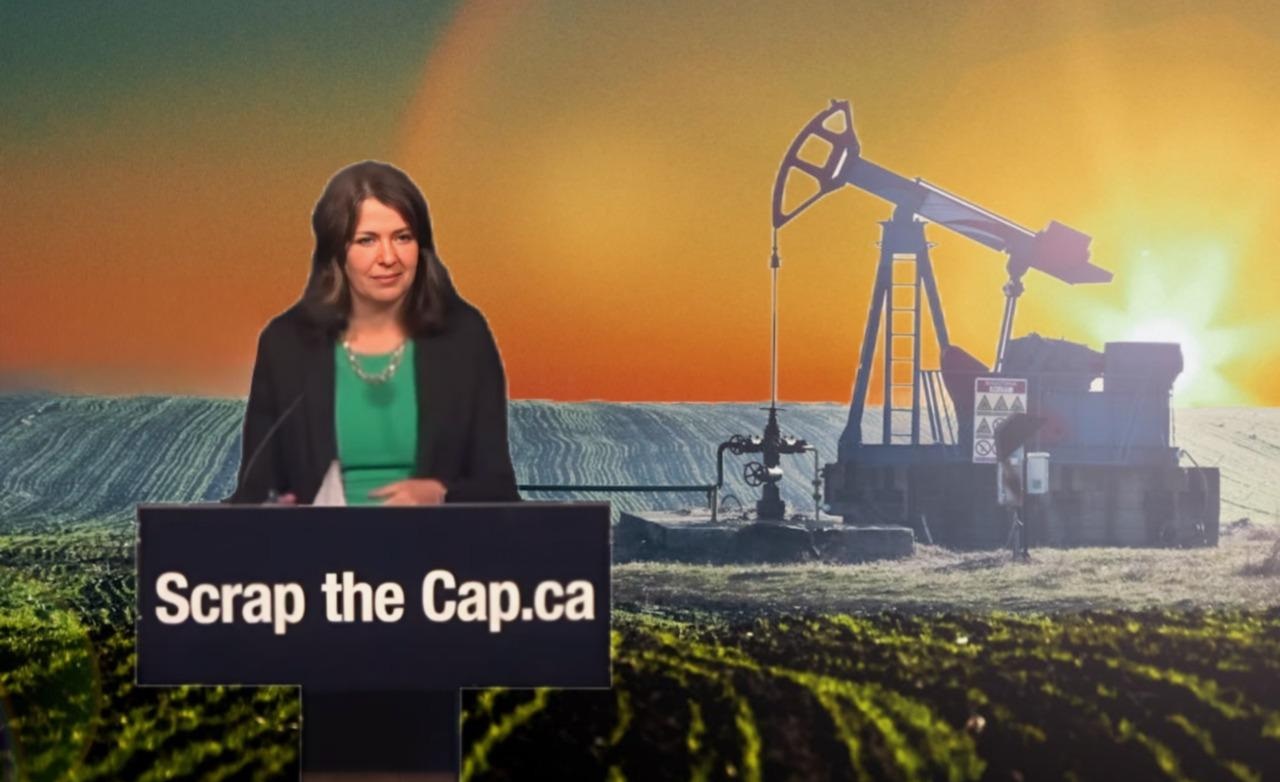Premier Danielle Smith made it clear on Monday that Alberta is not just waiting for a recovery in the oil sector. She’s taking action to ensure the province’s oil and gas production continues to grow — and fast.
Smith outlined a plan to double Alberta’s oil and gas production by collaborating with one of North America’s most prominent pipeline companies, Enbridge. The goal? To ensure more of Alberta’s energy reaches the U.S. market and beyond, further cementing the province’s pivotal role in North American energy security.
In her address, Smith highlighted the creation of a new working group between the Alberta government and Enbridge, designed to accelerate pipeline capacity and production. Enbridge’s vast network, which spans over 29,000 kilometers of pipelines, is crucial to Alberta’s ability to meet the growing demand for its oil.
“We have a responsibility to ensure that our oil and natural gas has market access,” Smith said, echoing the urgency of Alberta’s energy needs. “Actions like this announcement ensure that we will be active in this responsibility and active in this pursuit of the U.S. market, our largest trading partner.”
The working group, which includes representatives from the Alberta Petroleum Marketing Commission, will focus on expanding pipeline infrastructure, with the overarching goal of reducing bottlenecks that have hindered Alberta’s oil producers in the past. As Smith pointed out, regulatory hurdles have long plagued the oil industry, but she believes that by streamlining approval processes and reducing red tape, the provincial government can significantly speed up the development of new infrastructure.
She underscored the importance of this collaboration with Enbridge, noting that it’s a partnership that will increase Alberta’s ability to move more oil and gas across the continent. This, in turn, could encourage producers to increase their output and embark on new capital projects.
“Recent discussions with oil sands producers identified that over the last year, organic growth in the oil sands sector was 7%,” Smith said. “The added pipeline plans will require more production, more capital investment in the future, doubling oil and gas production in Albertan.”
With the U.S. now reliant on Alberta for more than 50% of its oil imports, Smith emphasized the critical importance of securing and expanding pipeline access to ensure continued prosperity for both Alberta and the United States. She also pointed to the global need for stable and affordable energy, suggesting that Alberta’s oil could help address growing energy demands across the world.
Smith has long made it clear that increasing Alberta’s oil production is central to her administration’s goals. But how can she convince the oil companies to ramp up their production?
While the news about Alberta’s oil expansion was certainly the focal point of the press conference, Smith also faced questions about political dynamics south of the border, especially with the incoming U.S. administration under President-elect Donald Trump and his threat to impose tariffs on Canadian imports, including oil.
Smith responded with characteristic directness, acknowledging that the potential tariffs were a cause for concern. However, she quickly pivoted to a more optimistic view: Alberta’s oil is an integral part of the U.S. energy landscape, and Smith believes the United States will recognize the value in continuing to partner with Canada for energy security.
“The U.S. consumes 20 million barrels of oil per day, but they only produce themselves 13 million,” Smith pointed out. “So, they need a stable source of oil to fill that gap. That’s where we come in.”
Smith sees the incoming Trump administration as a potential ally in this effort. She made it clear that Alberta has a significant opportunity to work with the U.S. government to ensure continued energy cooperation, citing the deep integration of Alberta’s oil in U.S. refineries and the shared goal of global energy dominance. “We’re a lot more optimistic about this plan going ahead with the new Administration,” she said.
When asked about the ongoing tensions with the federal government over energy policy, Smith didn’t mince words. She’s been calling for a federal election, a move she believes would give the new leadership a clear mandate to support Alberta’s oil production efforts. Despite Prime Minister Justin Trudeau’s announcement that he intends to step down, Smith’s call for immediate action remains firm.
“I would have preferred today to see an election,” Smith remarked, her tone revealing her frustration with the delay and mentioned Canada needs certainty in leadership, especially when negotiating with the U.S. government.
Smith’s concerns about the federal government’s lack of support for Alberta’s energy ambitions are well-documented. She has been vocal in her criticism of Ottawa’s stance on energy projects, including the cancellation of the Energy East pipeline and delays in approving other major infrastructure projects. Smith believes that Alberta can be a critical partner in ensuring North American energy security, but only if the federal government takes a more supportive approach.
Smith closed the conference with a note of optimism. While Alberta’s energy sector faces challenges, she is confident that the initiatives announced today will set the stage for future growth. Through partnerships with companies like Enbridge, streamlining of regulations, and continued collaboration with the U.S., Alberta can meet the demands of the global energy market.
In the weeks and months ahead, Alberta’s oil and gas industry will undoubtedly be under the spotlight as the province moves forward with plans to increase production and pipeline capacity. For Smith, this is about more than just economic growth — it’s about positioning Alberta as a leader in the global energy landscape and securing a prosperous future for its people.

